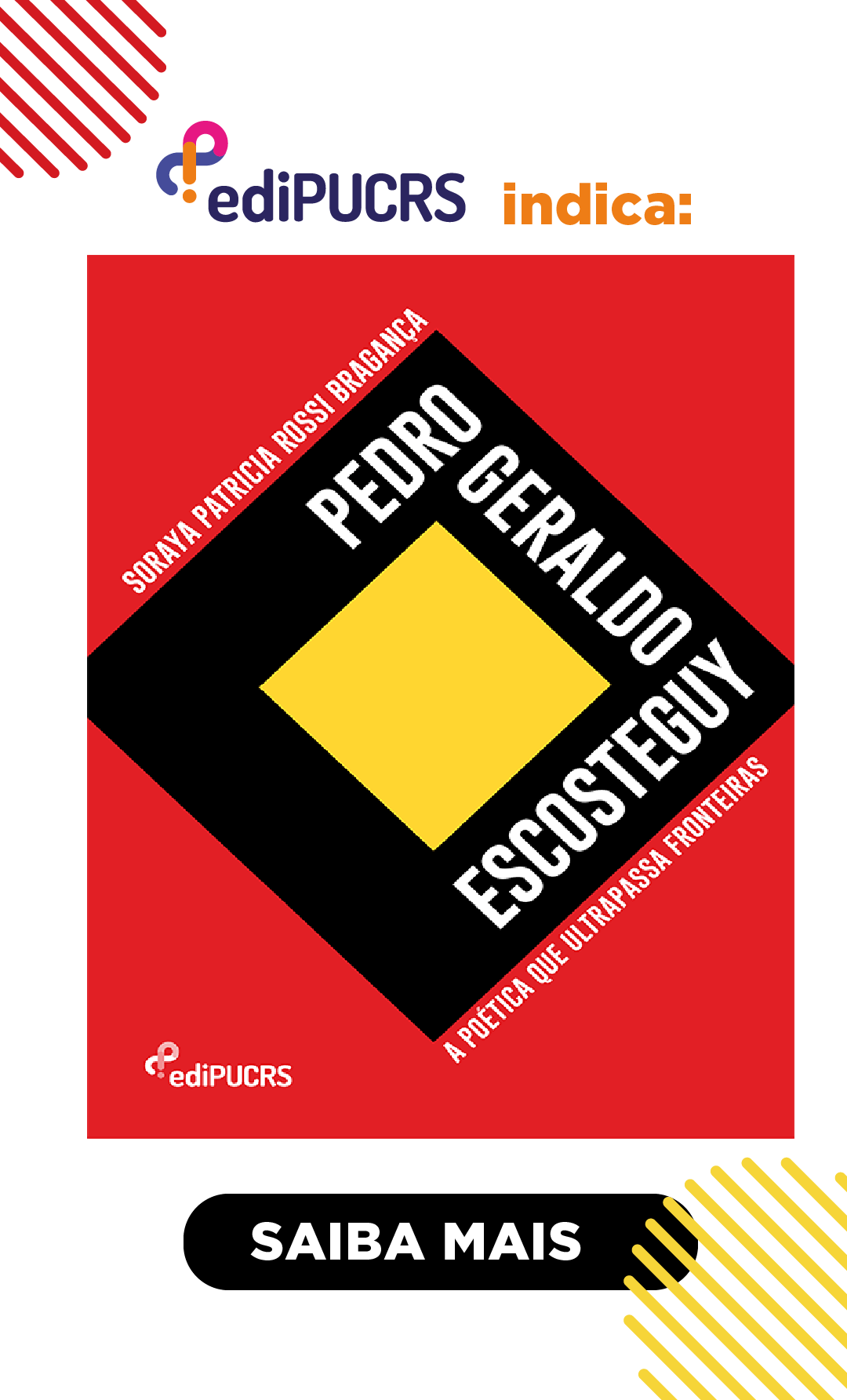Mask and performance – lusophone literatures in dialogue: the unfolding into heteronymous in the lyrics of Vírgilio de Lemos, reader of Fernando Pessoa
DOI:
https://doi.org/10.15448/1983-4276.2019.2.34064Keywords:
Virgilio de Lemos. Fernando Pessoa. Heteronimic. Mascara.Abstract
This paper presents an analysis of the heteronimic process in the writing of the poet Virgilio de Lemos. The poetic conception of the three main virgilian heteronyms is discussed: Lee-Li Yang, Duarte Galvão and Bruno dos Reis. Virgilio de Lemos constantly reiterates that he is a profound admirer and attentive reader of the work of Fernando Pessoa, attesting to the intertextual dialogue with this Portuguese poet and to the innovative game proposed by him in the scenario of Lusophone literatures in the 20th century. The metaphor of the “mascara” is present both in the discourse of Virgilio de Lemos and Fernando Pessoa, therefore, it is intended to investigate how the dynamics of staging and theatricality occurs in some poems of these writers, important heralds of Portuguese Language Literatures.Downloads
References
BAUDRILLARD, Jean. Simulacros e simulação. Tradução de Maria João da Costa Pereira. Lisboa: Relógio D’Água, 1981. (Coleção Antropos).
BENVENISTE, Émile. Problemas de linguística geral I. Tradução de Maria da Glória Novak e Maria Luisa Neri. 5. ed. Campinas: Pontes Editores, 2005.
DUARTE, Lélia Parreira. Heteronímia e ironia em Fernando Pessoa. [S. l.: s. n., 2010]. Disponível em: http://www.leliaparreira.com.br/images/ensaios/heteronimia.pdf. Acesso em: 10 nov. 2017.
FONSECA, Maria Nazareth Soares; MOREIRA, Terezinha Taborda. Panorama das literaturas africanas de língua portuguesa. Cadernos CESPUC de Pesquisa, Belo Horizonte, n. 16, p. 13-69, 2007.
ISER, Wolfgang. A literatura e o leitor: textos de estética da recepção. In: LIMA, Luiz Costa (Org.). A literatura e o leitor: textos de estética da recepção. Tradução de Luiz Costa
Lima. 2. ed. rev. e ampl. São Paulo: Paz e Terra, 2002. p. 9-36. https://doi.org/10.11606/issn.2316-9141.v0i125-126p191-192
KRISTEVA, Júlia. Sol negro: depressão e melancolia. Tradução de Carlota Gomes. Rio de Janeiro: Rocco, 1987.
LEMOS, Virgílio de. Eroticus moçambicanus: breve antologia da poesia escrita em Moçambique (1944/1963). Rio de Janeiro: Nova Fronteira, 1999.
LEMOS, Virgílio de. Jogos de prazer. Lisboa: Imprensa Nacional, 2009.
LOPES, Elizabeth. A magia das máscaras: ator e seu duplo. In: BELTRAME, Valmor Níni; ANDRADE, Milton de (org.). Teatro de máscaras. Florianópolis: UDESC, 2010.
LOURENÇO, Eduardo. Pessoa revisitado: leitura estruturante de um drama em gente. Porto: Editorial Inova, 1974. https://doi.org/10.11606/issn.2594-5963.lilit.1974.115786
MELO, Rosicler Ferraz de. O erotismo na poesia de Virgílio de Lemos (1944-1963): o eu que recorda. 2003. Dissertação (Mestrado em Literatura Portuguesa) – Faculdade de Letras, Universidade Federal do Rio de Janeiro, Rio de Janeiro, 2003. https://doi.org/10.21011/apn.2016.0602
PERRONE-MOISÉS, Leyla. A poética do ensaio. Revista Brasileira: Academia Brasileira de Letras, v. 2, n. 74, p. 9-14, 2013. Disponível em: https://livrozilla.com/doc/602235/ entrevista---machado-de-assis. Acesso em: 01 mar. 2018.
PESSOA, Fernando. Primeiro Fausto: passagem das horas. In: PESSOA, Fernando. Obra poética. Rio de Janeiro: Companhia Aguilar, 1965.
SECCO, Carmen Lúcia Tindó. Virgílio de Lemos e a linhagem pessoana de múltiplos eus. In: SANTOS, Gilda; OLIVEIRA, Paulo Motta. Genuína fazendeira: os frutíferos 100 anos de Cleonice Berardinelli. Rio de Janeiro: Bazar do Tempo, 2016. p. 185-198.
Downloads
Published
How to Cite
Issue
Section
License
Copyright
The submission of originals to Navegações implies the transfer by the authors of the right for publication. Authors retain copyright and grant the journal right of first publication. If the authors wish to include the same data into another publication, they must cite Navegações as the site of original publication.
Creative Commons License
Except where otherwise specified, material published in this journal is licensed under a Creative Commons Attribution 4.0 International license, which allows unrestricted use, distribution and reproduction in any medium, provided the original publication is correctly cited.





